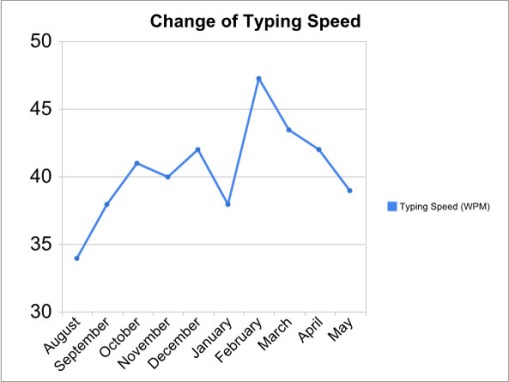 China to crack down on Internet bars: state media China will launch a four-month crackdown on unapproved Internet cafes, state media said Thursday, signalling heightened vigilance ahead of two politically sensitive anniversaries. The crackdown, lasting from June 1 to September 30, is aimed at preventing youths from gaining access to obscene and violent Web content, the China Daily said. But it comes as authorities are bracing for the June 4 anniversary of the crackdown on 1989 Tiananmen Square democracy protests and the 60th anniversary of the founding of the People’s Republic of China on October 1. Chinese authorities have in recent years tried to keep pace with an explosion in Internet use and block many websites they deem politically unacceptable or offensive. The crackdowns typically purport to shield Chinese youths from harmful content but are often invoked in conjunction with sensitive matters. In April, for example, China issued new restrictions on the posting of “harmful” political or religious videos online, two weeks after graphic footage of Chinese police allegedly beating Tibetan monks circulated on the Web. This summer’s campaign, coordinated by several key national ministries, would be focused on rural areas, where many youths left behind by their migrant worker parents are increasingly accessing harmful content in illegal Internet bars, the report said. China is widely expected to tighten security in Beijing and elsewhere for the upcoming anniversaries, with Tiananmen-related dissidents already reporting stepped-up restrictions this week. |
Hong Kong (AFP) May 28, 2009
The simplicity of WordPress has made it one of the world’s top blogging platforms six years after it was set up, its adherents ranging from knitting fanatics (jessinohio.wordpress.com) to CNN’s resident doctor Sanjay Gupta (pagingdrgupta.blogs.cnn.com/site).
But in 2006, as the site was growing from strength to strength, Chinese authorities suddenly blocked it.
Overnight, one million Chinese visitors to the various blogs disappeared, accounting for about a quarter of all traffic to the site.
“I wish there was a better story, but really it just went away one day and we didn’t know what to do about it,” Mullenweg told AFP, during a visit to Hong Kong to speak to some of his bloggers.
After some discussions, Mullenweg realised the site would be allowed back online if he agreed to block certain words or topics and give up information to the Chinese communist government about users.
“I started thinking about the DNA of the company,” he said. “That sort of company is not one I would wake up every day and feel passionate about working in.”
The site remains blocked, although Mullenweg, unable to suppress a giggle, points out that the official Chinese line insists it is freely available.
His decision not to pander to China contrasts sharply with other companies that have agreed to the country’s extensive Internet controls — often dubbed the Great Firewall of China — in the hope of gaining access to what is now the world’s biggest online market.
Yahoo! faced fierce criticism when it helped Chinese authorities identify a journalist who had passed on a sensitive Communist Party message to foreign websites. The journalist, Shi Tao, was subsequently jailed in 2005.
“I imagine that weighs very heavily on both the leadership of that company and also the morale of an entire organisation,” said Mullenweg, who is based in San Francisco and has done several recent deals with Yahoo!.
Despite the ban, Chinese bloggers still use WordPress technology in huge numbers, downloading its free access software and pasting their blogs through another server to avoid the censors.
That’s just the kind of technology-inspired rebellion that appeals to Mullenweg, who has also refused to submit to similar government demands in Turkey, and whose instinct is to make things freely-available.
He is considering putting all the firm’s expenses online, so everyone at Automattic, WordPress’s parent company, can access them. And his camera, which goes everywhere with him, carries a global positioning system, so he records the exact location of all his pictures.
This openness is reflected in WordPress’s approach — the blogging software is open source, so it can be downloaded and tinkered with as users see fit.
As a result of its accessibility and it simplicity, it now has more than 15 million bloggers using its technology, according to statistics on the site.
While setting up a blog is free, the site makes money by advertising or charging for extras, such as enhanced statistics packages or better promotion of a particular blog.
Mullenweg has become the darling of the Internet world, regularly featuring on lists of the “most powerful people in cyberspace” and accepting invitations to talk about how the web is changing the world.
The company, which still has fewer than 100 employees, remains privately held and so does not have to reveal earnings, and though reports have said Mullenweg turned down an offer of 200 million dollars in 2007 for a stake in the firm, money one of the few subjects he is reluctant to discuss.
“We are doing well, capital is not a limiting factor for us,” said Mullenweg, dressed in battered trainers and jeans after addressing a group of business leaders.
“I like that we always get the question how do you make money, because it means that we are not crassly over-commercialising,” he said.
His passion for simplicity was learned as teenage volunteer at the Houston Area League of PC Users, in the US city where he grew up. His job was fixing computers every Saturday for mainly elderly PC users.
“You saw all the cliches — CD-ROMS being used as a cup holder, but they were just trying to connect with (the technology). It was inspiring,” he said.
“You really develop an appreciation (for simplicity) and developing software is the same.
“People don’t want to use WordPress (for its own sake), they want to talk to their audience, share photos of their family and (WordPress) is either a way for them to do that or it is not.”
by Staff Writers


